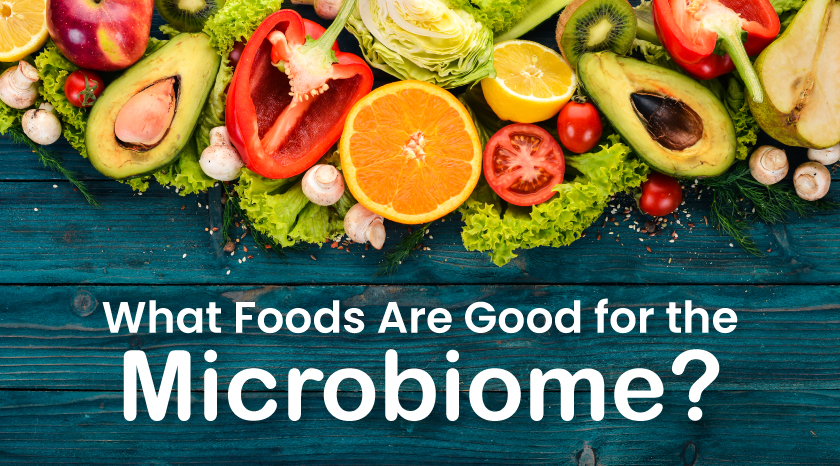The gut microbiome, composed of trillions of microorganisms, plays a crucial role in maintaining overall health. These microorganisms aid in digestion, bolster the immune system, and even influence mood and mental health. A balanced and diverse microbiome is essential for optimal health, and diet is one of the most significant factors influencing the composition of the gut microbiome. Here, we explore foods that are particularly beneficial for promoting a healthy microbiome.
1. Fiber-Rich Foods
Fruits and Vegetables
Fruits and vegetables are rich in dietary fiber, which acts as a prebiotic, feeding the beneficial bacteria in the gut. Some excellent choices include:
- Apples: High in pectin, a type of soluble fiber.
- Bananas: Contain both prebiotic fiber and essential minerals like potassium.
- Berries: Rich in fiber and antioxidants.
- Leafy Greens: Spinach, kale, and other leafy greens provide a wealth of fiber and nutrients.
Whole Grains
Whole grains are another excellent source of fiber. Unlike refined grains, whole grains retain their entire grain kernel, which includes the fiber-rich bran. Examples include:
- Oats: High in beta-glucan, a type of soluble fiber that promotes the growth of beneficial bacteria.
- Barley: Another whole grain rich in beta-glucan.
- Quinoa: A versatile whole grain that’s also a complete protein.
2. Fermented Foods
Fermented foods are rich in probiotics, which are live bacteria beneficial to gut health. Regular consumption of fermented foods can increase the diversity of the gut microbiome. Some popular fermented foods include:
- Yogurt: Contains live cultures such as Lactobacillus and Bifidobacterium.
- Kefir: A fermented milk drink that contains a diverse array of probiotic bacteria and yeasts.
- Sauerkraut: Fermented cabbage that’s rich in probiotics.
- Kimchi: A Korean dish made from fermented vegetables, typically cabbage and radishes, seasoned with various spices.
- Miso: A traditional Japanese seasoning made by fermenting soybeans with salt and koji.
- Kombucha: A fermented tea that contains beneficial bacteria and yeast.
3. Legumes
Legumes are an excellent source of dietary fiber and protein. They provide resistant starch and soluble fiber, which are both beneficial for gut bacteria. Some great options include:
- Lentils: High in prebiotic fiber and protein.
- Chickpeas: Contain both soluble and insoluble fiber, aiding digestion and feeding beneficial bacteria.
- Black Beans: Rich in fiber and antioxidants.
4. Nuts and Seeds
Nuts and seeds are nutrient-dense and provide healthy fats, fiber, and protein. They also contain prebiotics that support gut health. Some beneficial choices include:
- Almonds: High in fiber and healthy fats.
- Chia Seeds: Packed with fiber and omega-3 fatty acids.
- Flaxseeds: Rich in fiber and lignans, which have prebiotic effects.
5. Polyphenol-Rich Foods
Polyphenols are plant compounds that have numerous health benefits, including promoting the growth of beneficial gut bacteria. Foods rich in polyphenols include:
- Dark Chocolate: Contains high levels of polyphenols and can enhance the growth of beneficial gut bacteria.
- Green Tea: Rich in catechins, a type of polyphenol with antioxidant properties.
- Berries: Blueberries, strawberries, and other berries are high in polyphenols.
6. Garlic and Onions
Garlic and onions are rich in inulin, a type of prebiotic fiber that promotes the growth of beneficial bacteria such as Bifidobacteria and Lactobacilli. These foods also have antimicrobial properties that help maintain a healthy balance of gut flora.
A diet rich in fiber, fermented foods, legumes, nuts, seeds, polyphenol-rich foods, and prebiotic-rich vegetables like garlic and onions can significantly enhance the health of your microbiome. By incorporating these foods into your daily diet, you can support the growth of beneficial gut bacteria, improve digestion, boost your immune system, and enhance overall well-being. Prioritizing these foods will help maintain a balanced and diverse microbiome, essential for optimal health.
For more detailed information and studies on the microbiome and diet, check out sources such as MindBodyGreen, Healthline, and scientific journals on nutrition and microbiology.




